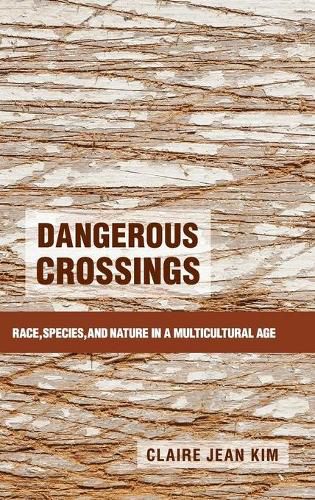Readings Newsletter
Become a Readings Member to make your shopping experience even easier.
Sign in or sign up for free!
You’re not far away from qualifying for FREE standard shipping within Australia
You’ve qualified for FREE standard shipping within Australia
The cart is loading…






Dangerous Crossings offers an interpretation of the impassioned disputes that have arisen in the contemporary United States over the use of animals in the cultural practices of nonwhite peoples. It examines three controversies: the battle over the ‘cruelty’ of the live animal markets in San Francisco’s Chinatown, the uproar over the conviction of NFL superstar Michael Vick on dogfighting charges, and the firestorm over the Makah tribe’s decision to resume whaling in the Pacific Northwest after a hiatus of more than seventy years. Claire Jean Kim shows that each dispute demonstrates how race and species operate as conjoined logics, or mutually constitutive taxonomies of power. Analyzing each case as a conflict between single optics (the optic of cruelty and environmental harm vs the optic of racism and cultural imperialism), she argues for a multi-optic approach that takes different forms of domination seriously, and thus encourages an ethics of avowal among different struggles.
$9.00 standard shipping within Australia
FREE standard shipping within Australia for orders over $100.00
Express & International shipping calculated at checkout
Dangerous Crossings offers an interpretation of the impassioned disputes that have arisen in the contemporary United States over the use of animals in the cultural practices of nonwhite peoples. It examines three controversies: the battle over the ‘cruelty’ of the live animal markets in San Francisco’s Chinatown, the uproar over the conviction of NFL superstar Michael Vick on dogfighting charges, and the firestorm over the Makah tribe’s decision to resume whaling in the Pacific Northwest after a hiatus of more than seventy years. Claire Jean Kim shows that each dispute demonstrates how race and species operate as conjoined logics, or mutually constitutive taxonomies of power. Analyzing each case as a conflict between single optics (the optic of cruelty and environmental harm vs the optic of racism and cultural imperialism), she argues for a multi-optic approach that takes different forms of domination seriously, and thus encourages an ethics of avowal among different struggles.